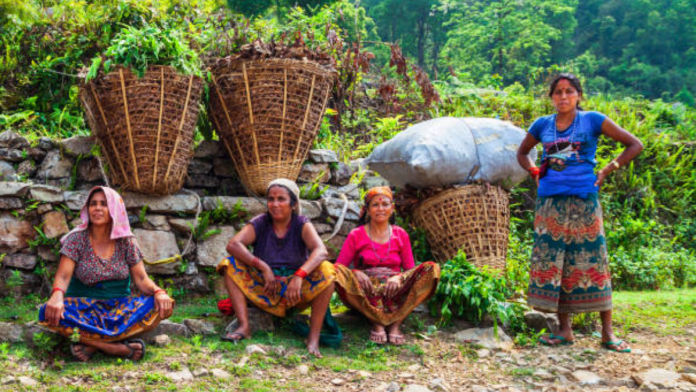News in Brief:
– Nepal migrant workers increasingly seek overseas jobs due to climate change’s impact on agriculture.
– Climate-induced disasters, such as floods and droughts, drive economic migration as local farmers struggle with declining yields and uncertain weather patterns.
Migrant workers from Nepal are increasingly eyeing overseas jobs due to climate threats affecting their homeland. Prem Nepali, a 34-year-old currently working in Dubai, reflects this growing phenomenon in a discussion with Eco-Business.
Prem, once a cleaner back at home, now works as a helper in a vehicle repair shop in Dubai. He blames the impact of shifting weather patterns on agriculture in his home district of Bardiya. “How can I stay home when agriculture is in a declining trend?” he questions.
Climate and economic migration
While economic migration has been a long-standing practice in Nepal, recent years have seen a new factor influencing the decision to leave – climate change. Extreme weather events and climate-induced disasters, such as the 2021 Melamchi River flood, are contributing to people choosing labour or educational migration as an adaptive measure.
Sunder Pandit, now residing in Sydney, recounts how the Melamchi flood swept away his hospitality business and trout farm, pushing him towards migration. Reports categorise regions like Sindhupalchok as “high-impact” areas for climate-induced disasters. Local farmers, like Ram Bindo Yadav and Bhuran Yadav, express the difficulty of farming due to uncertain rainfall and frequent droughts, driving them to seek opportunities abroad.
Agriculture sector under strain
The 2021 vulnerability and risk assessment from the environment department reveal that natural hazards, particularly floods, droughts, and landslides, are significant drivers behind economic migration. The agricultural sector, a lifeline for many, is badly impacted by these recurrent climate-related challenges.
Chiranjivi Baral, a migration researcher, highlights the impact on diverse communities, from sheep herders in Mustang to farmers in the Tarai plains. Climate change’s pervasive influence is evident, with 91% of farming families acknowledging its impact on their agricultural activities, resulting in an 85% decrease in yields.
Despite the challenges, migrants like Prem express a longing to return home and revive their agricultural livelihoods. “Farming is what we did as a source of livelihood there, and I have hope that there will be a way to make it happen again,” says Prem, reflecting the resilience of individuals facing the dual challenges of climate change and economic migration.



